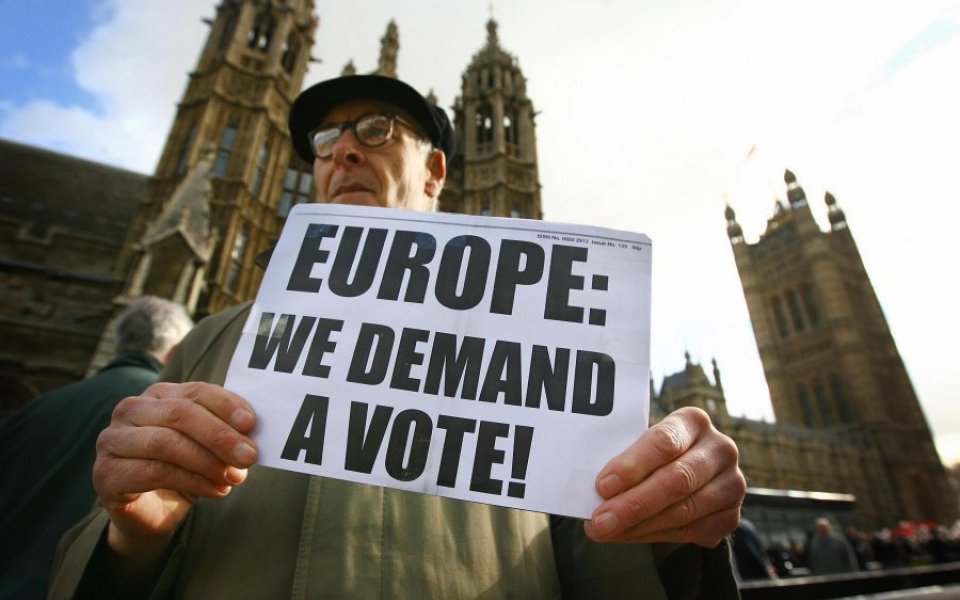EU referendum: Labour and the Conservatives are at risk of looking as though they are adrift of many of their “natural” supporters

Superficially, the referendum on Britain’s membership of the European Union is about whether Britain should remain in or leave an international organisation of which it has been a member for the last forty years. In practice, NatCen’s What UK Thinks: EU project has shown it is a ballot that promises to expose a significant internal social division that poses awkward questions for both the Conservatives and Labour.
On one side of the divide are young people and graduates. Polls consistently find that those in their twenties and thirties and those who have done well out of the country’s education system are keenest on remaining in the EU.
In contrast, older people and those with few, if any, educational qualifications mostly want to leave.
On average, recent polls of referendum vote intentions give the Remain side a 25 point lead amongst the under 35s. In contrast Leave are ahead by 17 points amongst the over 65s.
Read more: Disunited Kingdom: How far apart are we on the EU?
Meanwhile two major academic surveys have found that there may be as much as a 60 point majority in favour of remaining amongst graduates. In contrast, amongst those with no educational qualifications Leave may be as much as 20 points ahead.
This social division is not surprising. It is a reflection of how an increasingly globalised world has affected one half of Britain very differently from the other half.
For many a young graduate the world is their oyster – or at least a place where they can find job opportunities almost anywhere. Living and working in Brussels or Berlin is as much an option as doing so in Bromley or Brighton.
And even if they do opt to live in Britain, many graduates welcome the chance to live in a linguistically, ethnically and culturally diverse country. They have little to reason to fear that they might struggle to find work because of competition from those coming to Britain from abroad.
The position is very different for older people who have few, if any, educational qualifications. They lack the skills and qualifications needed to find well paid work elsewhere. Meanwhile, they fear that finding adequately paid work such as, for example, a cleaner or a bricklayer, is made more difficult by the ‘influx’ of immigrants from abroad.
Read more: Lord Lamont talks Osborne, EU and Varoufakis
At the same time, they are not necessarily very comfortable when they find themselves living and working alongside those who speak a different language or who adopt different religious or cultural practices.
This social division not only matters in itself. It also helps explain why Europe is potentially such a divisive and difficult issue for both the Conservatives and Labour.
The middle class profile of the typical pro-EU voter matches that of the stereotypical Conservative voter, while that of the typical anti-EU supporter looks much like the portrait of the traditional Labour voter. Yet it is Labour who are the keener to remain in the EU, while it is amongst Conservatives that Euroscepticism is more common.
In short, both parties are at risk of looking as though they are adrift of many of their ‘natural’ supporters. That is unlikely to prove a comfortable place to be.